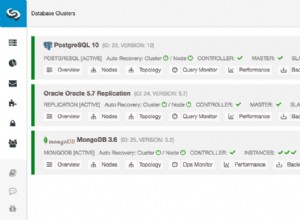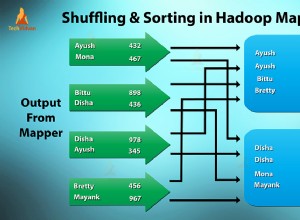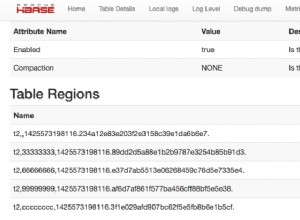Możesz użyć $cond
operator w $project etap zastępowania pustego attr tablica z taką, która zawiera symbol zastępczy, taki jak null który może być użyty jako znacznik wskazujący, że ten dokument nie zawiera żadnego attr elementy.
Więc wstawisz dodatkowy $project taki etap tuż przed $unwind :
{
$project: {
attrs: {$cond: {
if: {$eq: ['$attrs', [] ]},
then: [null],
else: '$attrs'
}}
}
},
Jedynym zastrzeżeniem jest to, że otrzymasz null wartość w końcowym attrs tablica dla tych grup, które zawierają co najmniej jeden dokument bez żadnych attrs elementy, więc musisz zignorować te po stronie klienta.
Przykład
W przykładzie użyto zmienionego $match etapie, ponieważ ten w twoim przykładzie jest nieprawidłowy.
Dokumenty wejściowe
[
{_id: {type: 1, id: 2}, attrs: []},
{_id: {type: 2, id: 1}, attrs: []},
{_id: {type: 2, id: 2}, attrs: [{name: 'john', type: 22}, {name: 'bob', type: 44}]}
]
Wyjście
{
"result" : [
{
"_id" : 1,
"attrs" : [
null
]
},
{
"_id" : 2,
"attrs" : [
{
"name" : "bob",
"type" : 44
},
{
"name" : "john",
"type" : 22
},
null
]
}
],
"ok" : 1
}
Polecenie agregacji
db.test.aggregate([
{
$match: {
'_id.servicePath': {
$in: [
null
]
}
}
},
{
$project: {
_id: 1,
"attrs.name": 1,
"attrs.type": 1
}
},
{
$project: {
attrs: {$cond: {
if: {$eq: ['$attrs', [] ]},
then: [null],
else: '$attrs'
}}
}
},
{
$unwind: "$attrs"
},
{
$group: {
_id: "$_id.type",
attrs: {
$addToSet: "$attrs"
}
}
},
{
$sort: {
_id: 1
}
}
])




